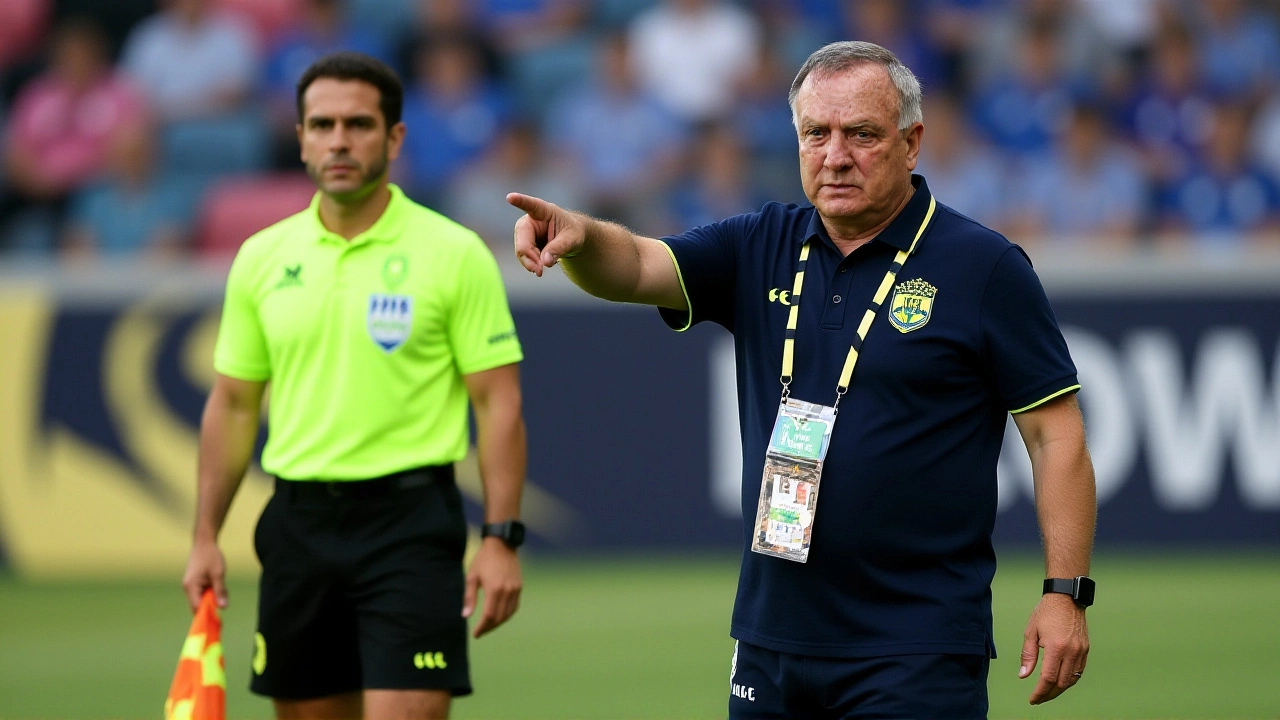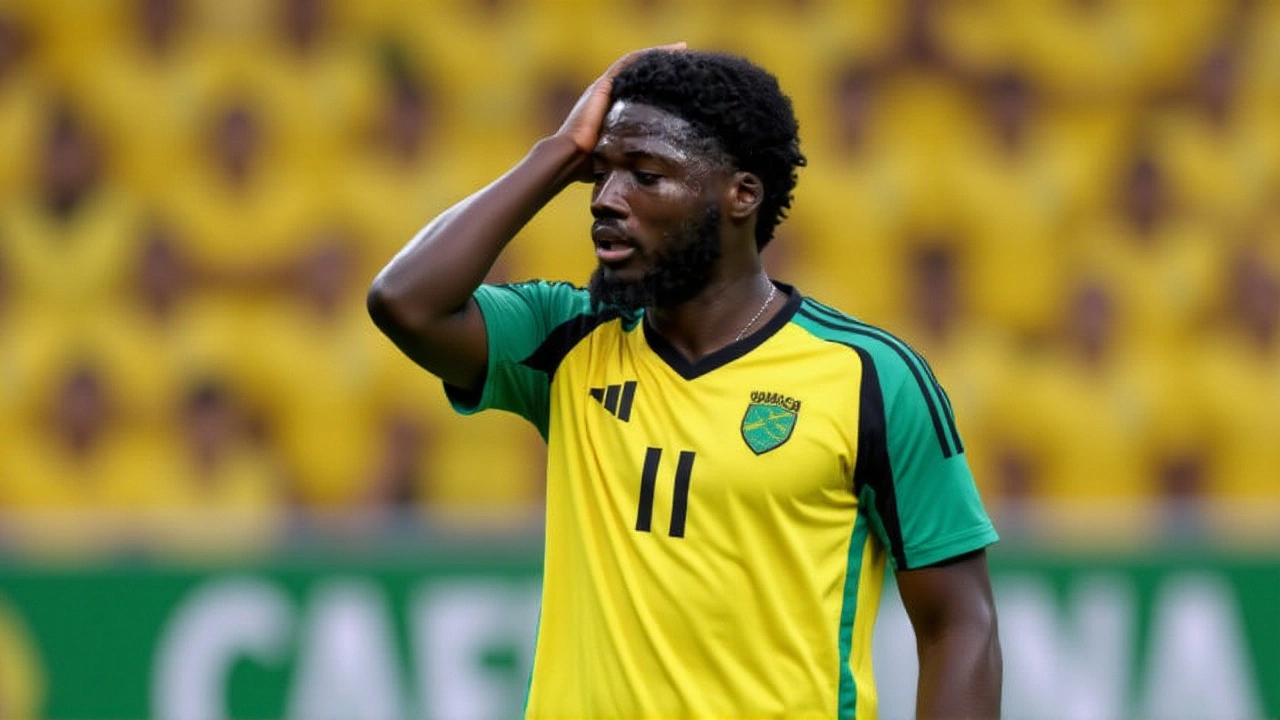78-Year-Old Advocaat to Become Oldest World Cup Coach After Curaçao’s Historic Qualification
 Nov, 20 2025
Nov, 20 2025
When the final whistle blew at Independence Park in Kingston on November 19, 2025, no one in the stands cheered louder than the 78-year-old man watching from his living room in The Hague. Dick Advocaat, the Dutch coach who hadn’t stepped foot on the pitch in Jamaica, had just made history — not by being there, but by being the mind behind it. His Curaçao national football team, population barely over 150,000, had drawn 0-0 with Jamaica to qualify for the 2026 FIFA World CupUnited States, Canada, and Mexico, becoming the smallest nation ever to reach football’s biggest stage. And Advocaat, born September 27, 1947, will be 78 years and 259 days old when the tournament kicks off — shattering the record once held by Germany’s Otto Rehhagel.
A Coach Who Refused to Retire
Advocaat didn’t just stumble into this moment. He came out of retirement specifically for it. After managing Feyenoord in the Dutch Eredivisie at age 72 — making him the oldest coach in league history at the time — he took a job no one else wanted: turning a Caribbean underdog into a World Cup contender. He took charge of Curaçao in January 2024, less than two years before the decisive match. His resume? Impeccable. Three stints with the Netherlands national team. The 2006 World Cup with South Korea. The 2008 UEFA Cup with Zenit St. Petersburg. He’s coached seven national teams, from Russia to Iraq. But this? This was different."It’s not about trophies anymore," he told Dutch media shortly after leaving the squad. "It’s about proving that size doesn’t determine destiny." And he meant it. Curaçao had never qualified. Not once. Not even in the old Netherlands Antilles era. Now, they had.
The Night That Changed Everything
The match wasn’t pretty. It was tense, nerve-wracking, and at times, brutal. Jamaica, playing in front of a roaring crowd at Independence Park, hit the woodwork three times in the second half. A penalty in stoppage time was overturned by VAR — a moment that sent the home crowd into stunned silence. The ball bounced off the crossbar. The referee’s whistle blew. Curaçao held on.Advocaat wasn’t there. He’d left the team just before the qualifier, citing "family reasons." He watched the match at 2 a.m. local time in The Hague, phone in hand, talking to team manager Wouter Jansen, who relayed halftime instructions to assistants Dean Gorre and Cor Pot. "He told us to stay calm, trust the system, and don’t chase the game," Gorre later recalled. "He knew we had the discipline. He just needed us to believe it."
That belief came from years of tactical discipline. Advocaat’s Curaçao side played a compact 4-2-3-1, with two holding midfielders shielding a back four. They conceded just two goals in their final six qualifiers. Their goalkeeper, Jamoi Toye, made a series of stunning saves in Kingston — but it was the collective resilience that stunned observers. "They didn’t play like a team from a tiny island," said Jamaican captain Alvas Powell. "They played like champions. And that coach? He’s got magic in his clipboard."

Why This Matters Beyond the Pitch
Curaçao’s qualification isn’t just a feel-good story. It’s a seismic shift in how global football views scale. The smallest nation to ever qualify — smaller than Liechtenstein, smaller than San Marino, smaller than even Monaco — now sits among the world’s elite. The island, a constituent country of the Kingdom of the Netherlands, has no professional league. Its best players are scattered across Europe’s lower divisions. Many work day jobs. Some commute from the Netherlands just to train."This proves football isn’t about budgets," said former Netherlands captain Clarence Seedorf, who grew up in Amsterdam but has Curaçaoan roots. "It’s about identity. Advocaat didn’t just coach a team. He gave a people pride they never thought they’d have."
For Advocaat, it’s the capstone of a 45-year career that began in 1980. He’s won league titles, cups, and even broke Bob Glendenning’s 77-year-old record as the Netherlands’ most successful manager by win percentage. But none of those achievements carried the weight of this. When he led the Dutch to the 1994 World Cup quarterfinals, he was 46. Now, at 78, he’s doing it again — from afar, with a phone call, and with a heart full of emotion.
What Comes Next
Advocaat has said he’ll join the team in the U.S. for the World Cup group stage — if his health allows. He’s not planning to retire after this. "I’ve got one more tournament in me," he told De Telegraaf last week. "And if Curaçao can do this, why can’t I?"The draw for the 2026 World Cup will happen in December. Curaçao could face the United States, Mexico, or even Brazil. They’ll be underdogs. But they won’t be underestimated. Not anymore.

A Legacy Beyond the Record
The world remembers Rehhagel for Greece’s 2004 Euro win. They’ll remember Advocaat for something quieter, deeper: proving that coaching isn’t about age, but about vision. That a man in his late 70s can still outthink a continent. That a team from a tiny island, with no professional infrastructure, can stand shoulder-to-shoulder with giants.When the final whistle blew in Kingston, fans in Willemstad danced in the streets. In The Hague, Advocaat sat alone in his living room, staring at the screen. He didn’t cheer. He didn’t cry. He just whispered to himself: "They did it."
Frequently Asked Questions
How did Curaçao qualify for the World Cup despite having such a small population?
Curaçao qualified through the CONCACAF qualifying pathway, finishing second in their final group behind Canada but ahead of Jamaica and Guatemala. Their defensive discipline, under Advocaat’s guidance, allowed them to earn crucial draws — including the 0-0 result against Jamaica — which proved enough for qualification. With only 150,000 people, they’re the smallest nation by population ever to reach the World Cup finals.
Why wasn’t Dick Advocaat present for the crucial qualifier?
Advocaat left the team shortly before the Jamaica match due to family obligations, which he described as "more important than football." He remained in contact via phone, relaying tactical instructions to assistant coaches through team manager Wouter Jansen. He watched the match from his home in The Hague at 2 a.m. local time, confirming his commitment despite physical absence.
What record did Advocaat break, and who held it before?
Advocaat will be 78 years and 259 days old at the start of the 2026 World Cup, surpassing German coach Otto Rehhagel, who was 71 years and 317 days old when he managed Greece in their final group match against Argentina at the 2010 World Cup. Advocaat’s age makes him the oldest head coach in World Cup history — a record previously thought unbreakable.
Is this Advocaat’s final coaching job?
Advocaat has indicated he plans to coach Curaçao at the 2026 World Cup finals, suggesting this isn’t retirement. He’s already stated he has "one more tournament in me." At 78, he’s defying norms about age in coaching — and if he leads Curaçao beyond the group stage, he may well extend his career further.
How does Curaçao’s qualification impact global football?
Curaçao’s qualification shatters the myth that only wealthy, populous nations can compete at the highest level. It highlights the growing competitiveness of CONCACAF’s smaller teams and could inspire investment in youth development across the Caribbean. For the first time, a nation with no professional league has earned a spot against global superpowers — changing perceptions of what’s possible in international football.
What’s unique about Advocaat’s coaching style?
Advocaat is known for his structured, disciplined systems — often favoring compact defenses and quick transitions. He’s a disciple of Rinus Michels’ total football philosophy, but adapts it pragmatically to his team’s limitations. With Curaçao, he emphasized organization over flair, discipline over individual brilliance — turning a squad of part-time players into a unit that could outlast stronger opponents.